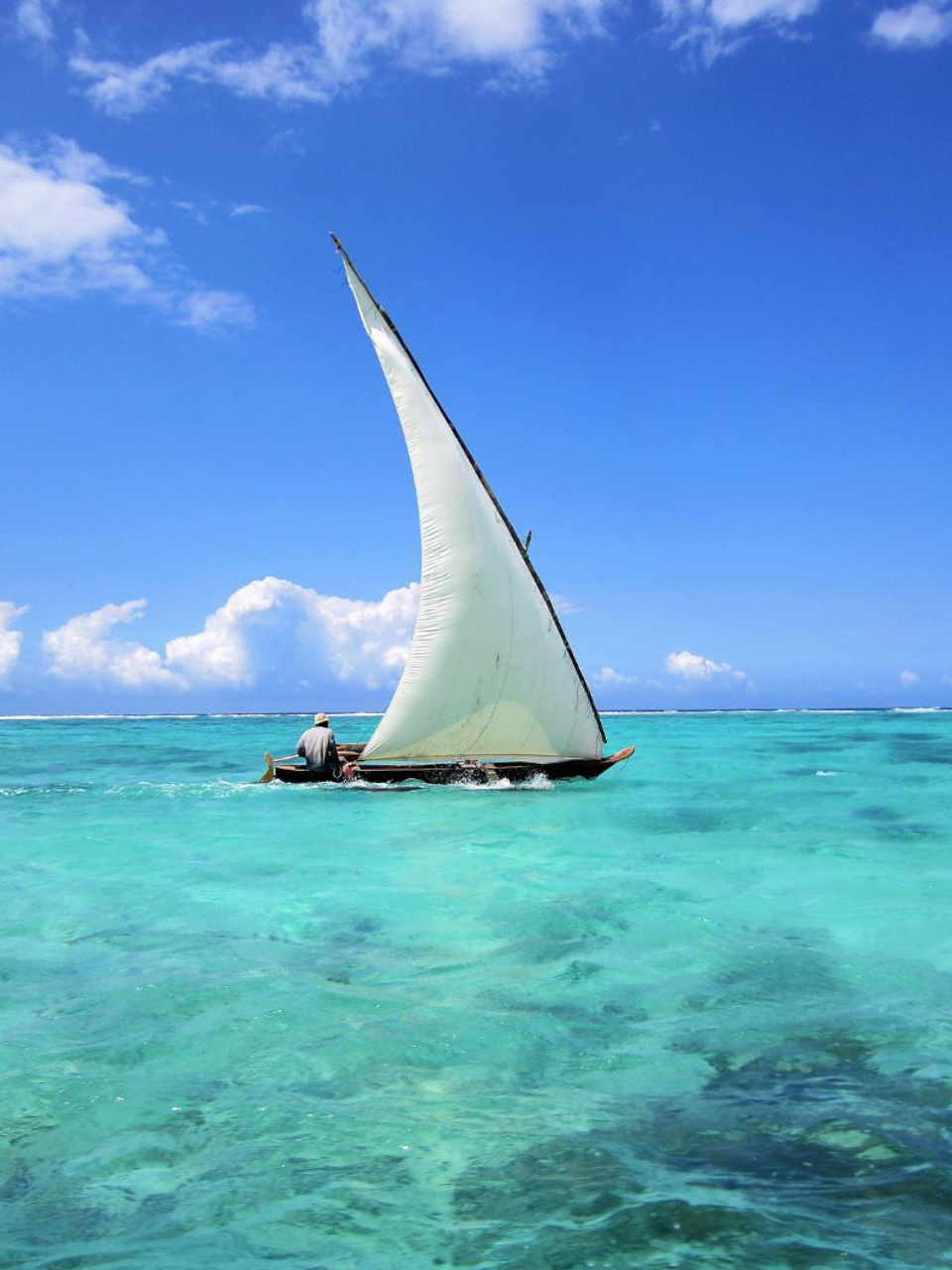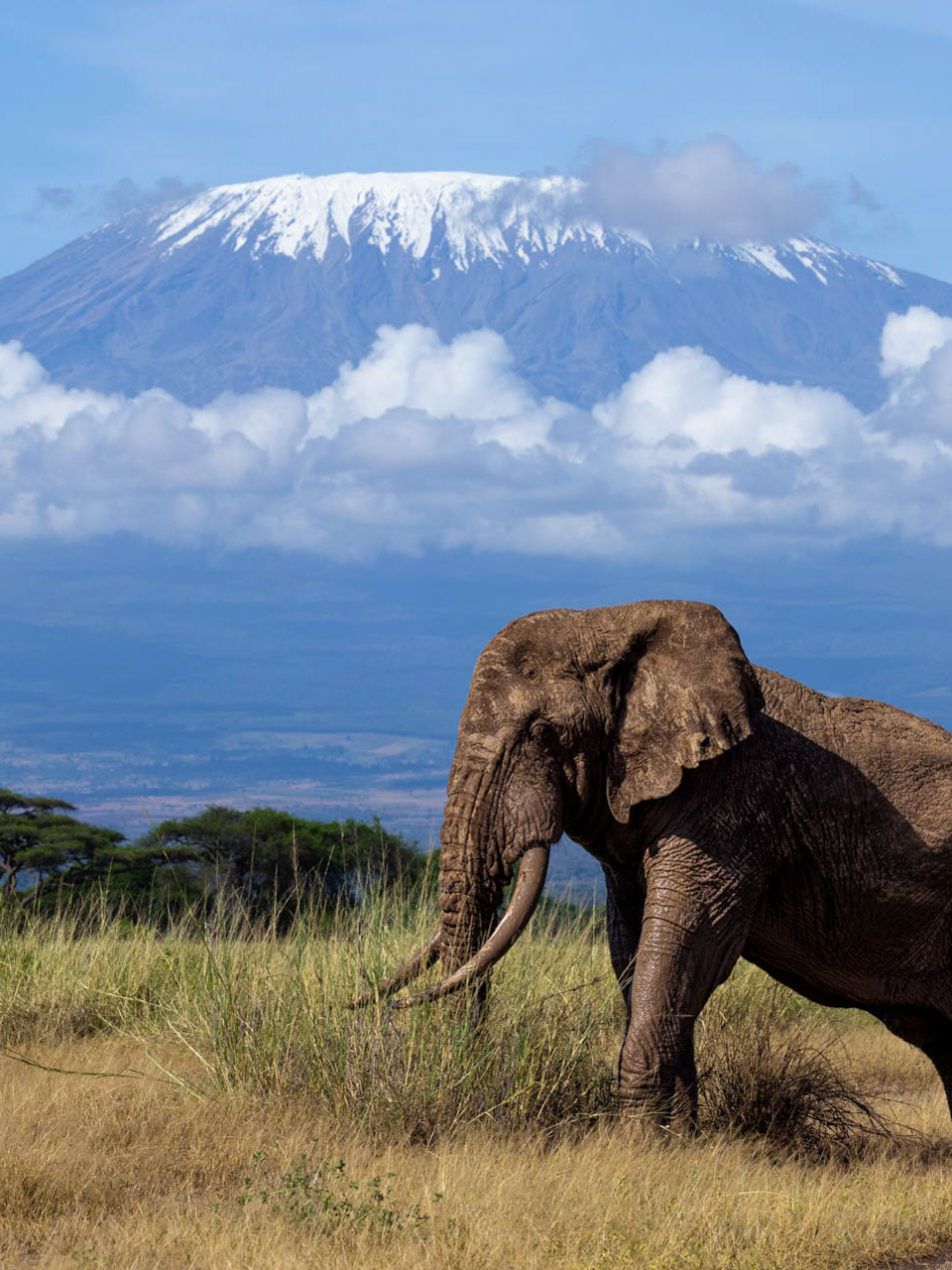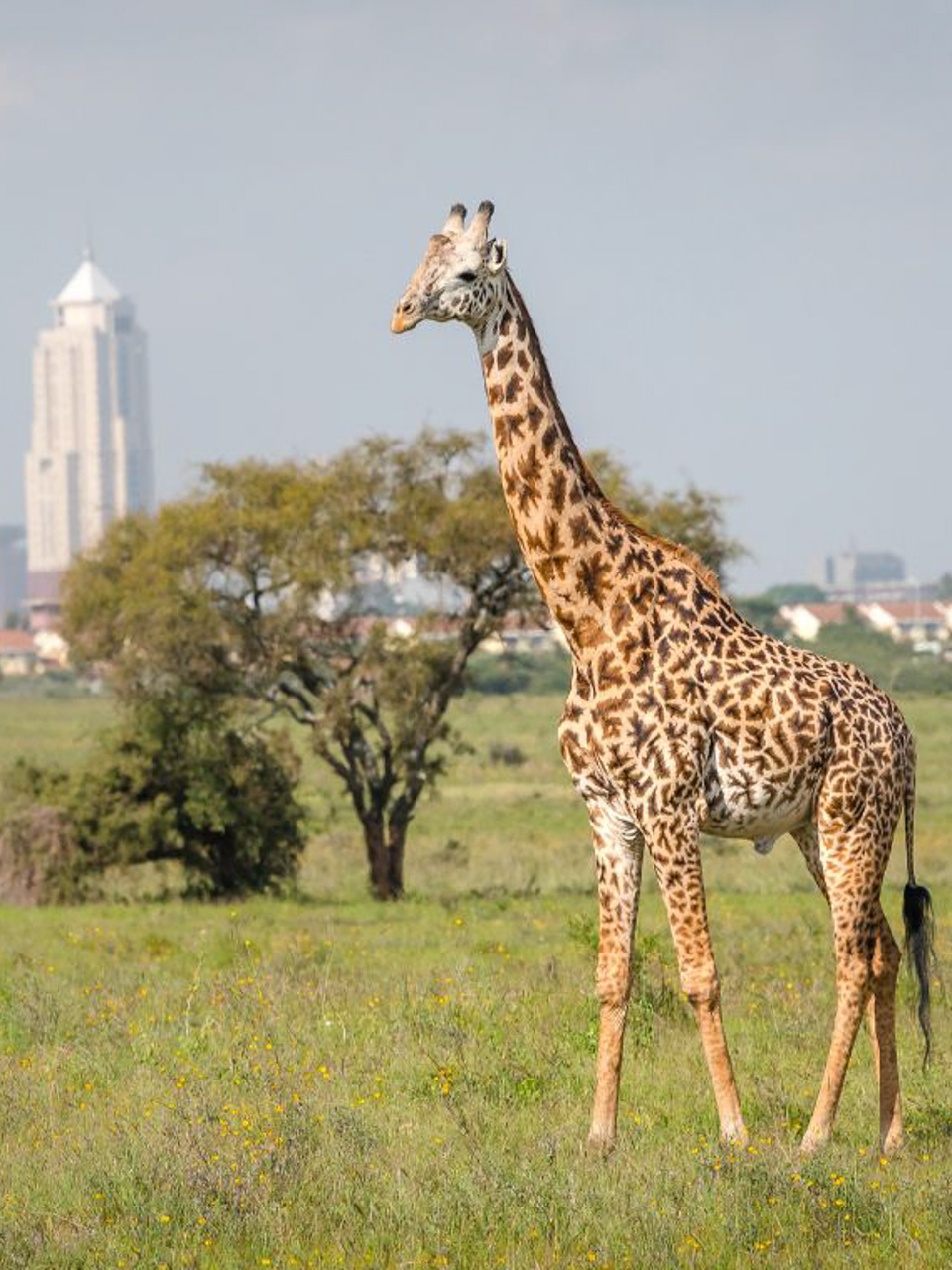A short hop and a skip over the Kenya-Tanzania border will find you in the Serengeti. A trip to Tanzania is a beautiful compliment to your Mara safari, especially from October to June when the herds of the Great Migration give birth in the open grasslands. During the rest of the year, the Serengeti is no stranger to other natural marvels. At the same time, a dizzying array of life thrives in the Ngorongoro Crater year-round, dubbed ‘Africa’s Garden of Eden’.
Comprising nearly 1.5 million hectares, the Serengeti National Park is one of Africa’s most extensive conserved tracts. It is so big that the Maasai named it ‘the place where the land runs forever’. It is most famous as the host of the Great Migration for nine months of the year. But really, it is the vast, sweeping savannas punctuated by acacia trees and rocky outcrops that make the Serengeti special.
Beyond the Migration, the Serengeti boasts an abundance of resident wildlife; aside from lions, the National Park protects four endangered species: black rhinoceros, elephants, wild dogs and cheetah.
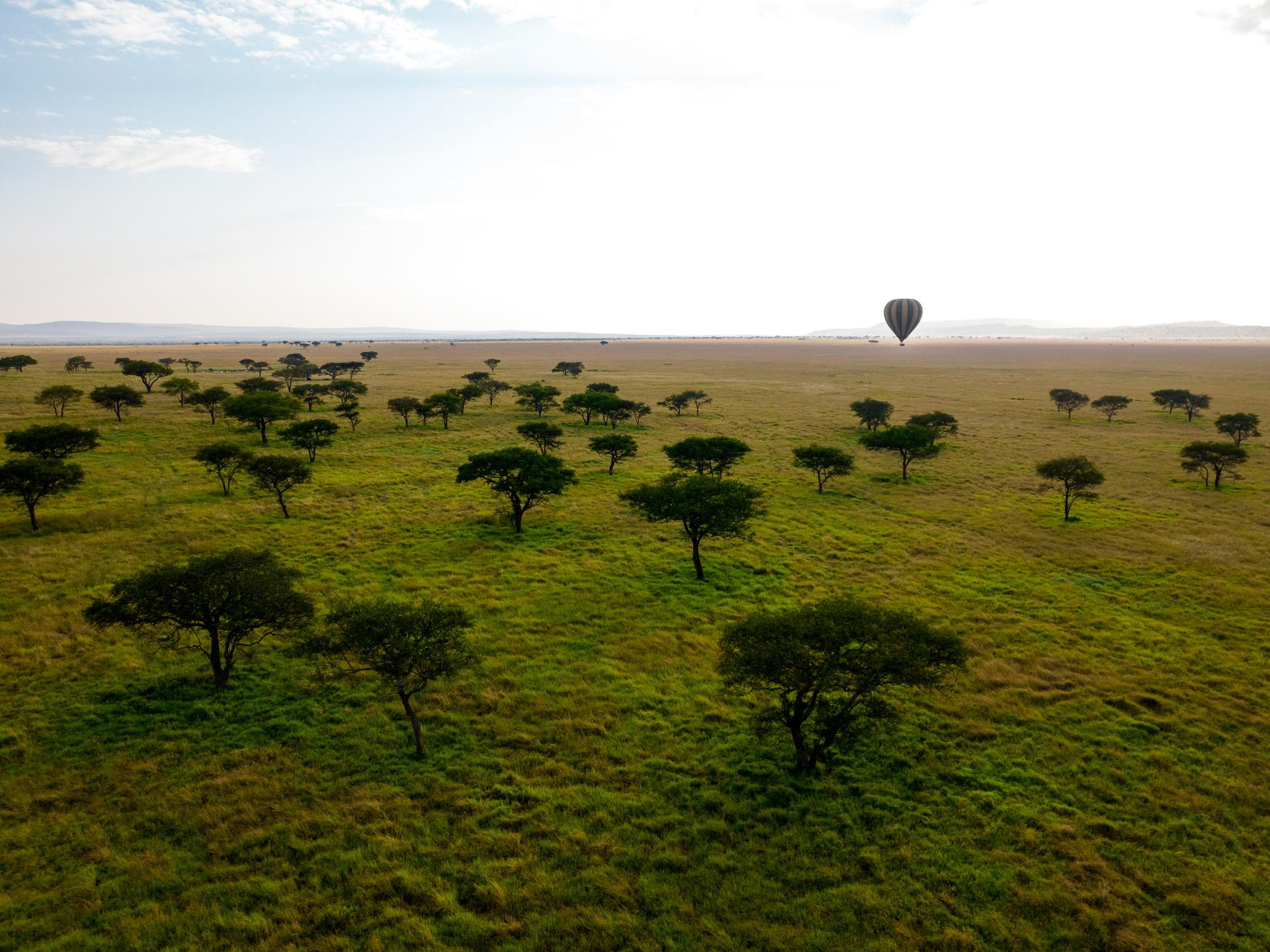
Described as the ‘whole world of East African safari in miniature’, the Crater is a mind-boggling geographical and natural wonder. Each day, descend 600 metres down steep, heavily wooded cliffs that make up the sides of Ngorongoro Crater — the perfectly formed and largest extinct volcanic caldera in the world.
Spanning 260 square kilometres, the Crater’s floor, predominantly wooded and dotted with expansive alkaline lakes, is filled with exciting wildlife and beautiful birds, surpassing even the Serengeti in diversity.
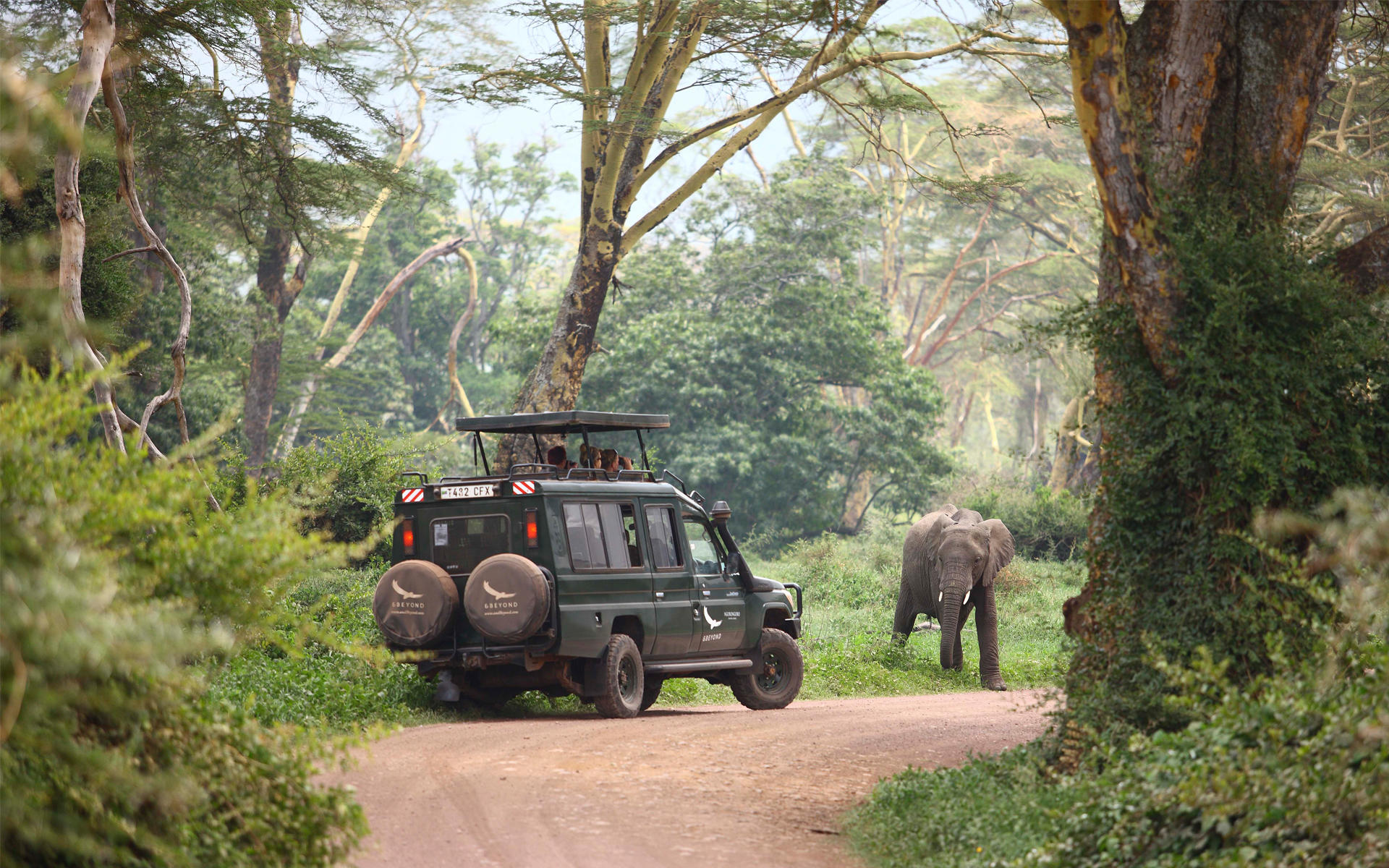
The southern Serengeti is dry and seemingly barren in September-October but transforms into spectacular grass-covered green in the rainy season. The rains deliver extraordinary experiences, especially in February and March: countless wildlife births and exciting interactions, vast open spaces and big skies, all setting the scene for an adventure out of the Maasai Mara’s ‘Migration time’.
Furthermore, the Southern Serengeti is one of the few places in the entire ecosystem where you can go on a walking safari and see the grasslands from a different perspective.
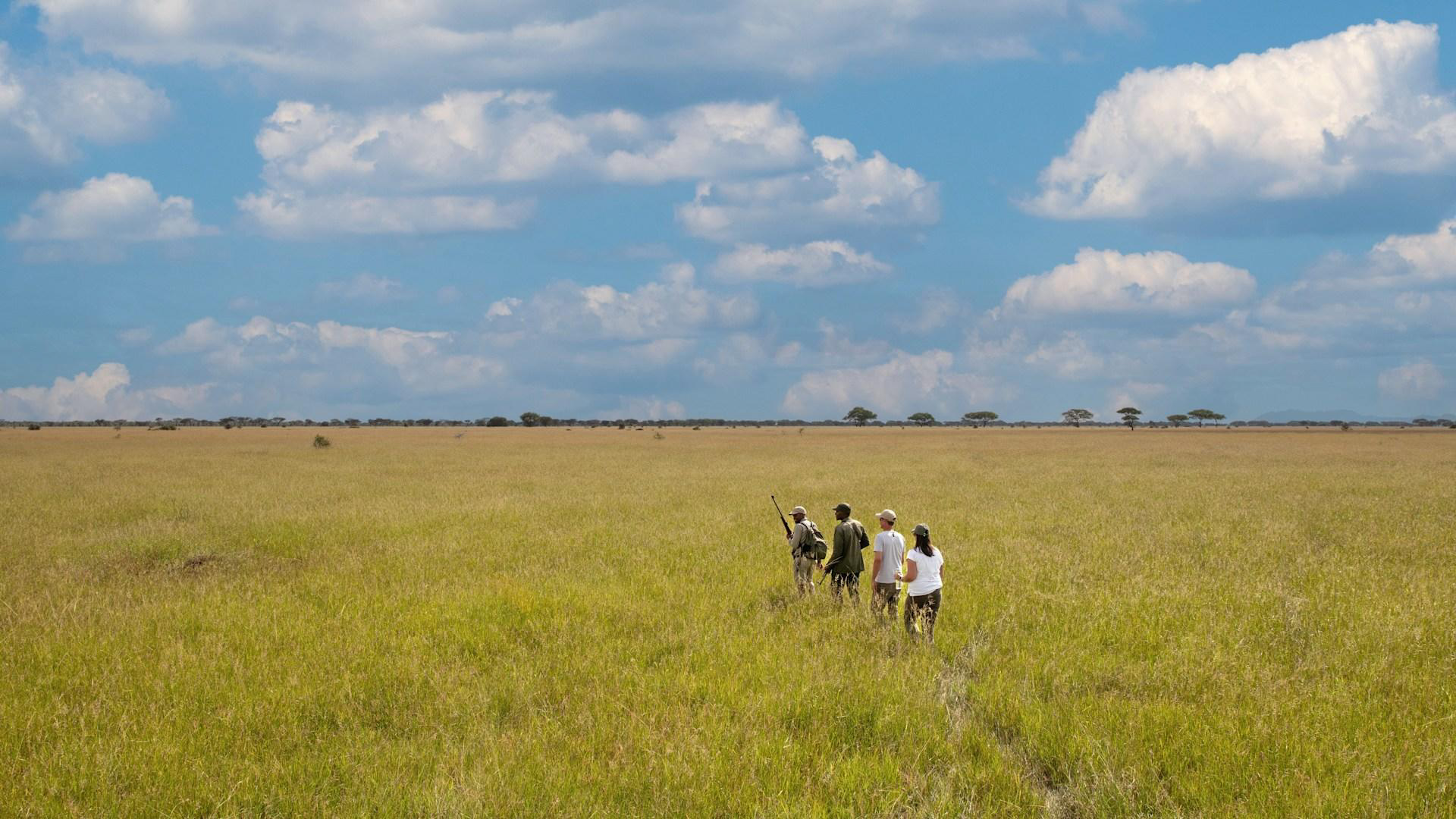
Comprising nearly 1.5 million hectares, the Serengeti National Park is one of Africa’s most extensive conserved tracts. It is so big that the Maasai named it ‘the place where the land runs forever’. It is most famous as the host of the Great Migration for nine months of the year. But really, it is the vast, sweeping savannas punctuated by acacia trees and rocky outcrops that make the Serengeti special.
Beyond the Migration, the Serengeti boasts an abundance of resident wildlife; aside from lions, the National Park protects four endangered species: black rhinoceros, elephants, wild dogs and cheetah.
Described as the ‘whole world of East African safari in miniature’, the Crater is a mind-boggling geographical and natural wonder. Each day, descend 600 metres down steep, heavily wooded cliffs that make up the sides of Ngorongoro Crater — the perfectly formed and largest extinct volcanic caldera in the world.
Spanning 260 square kilometres, the Crater’s floor, predominantly wooded and dotted with expansive alkaline lakes, is filled with exciting wildlife and beautiful birds, surpassing even the Serengeti in diversity.
The southern Serengeti is dry and seemingly barren in September-October but transforms into spectacular grass-covered green in the rainy season. The rains deliver extraordinary experiences, especially in February and March: countless wildlife births and exciting interactions, vast open spaces and big skies, all setting the scene for an adventure out of the Maasai Mara’s ‘Migration time’.
Furthermore, the Southern Serengeti is one of the few places in the entire ecosystem where you can go on a walking safari and see the grasslands from a different perspective.




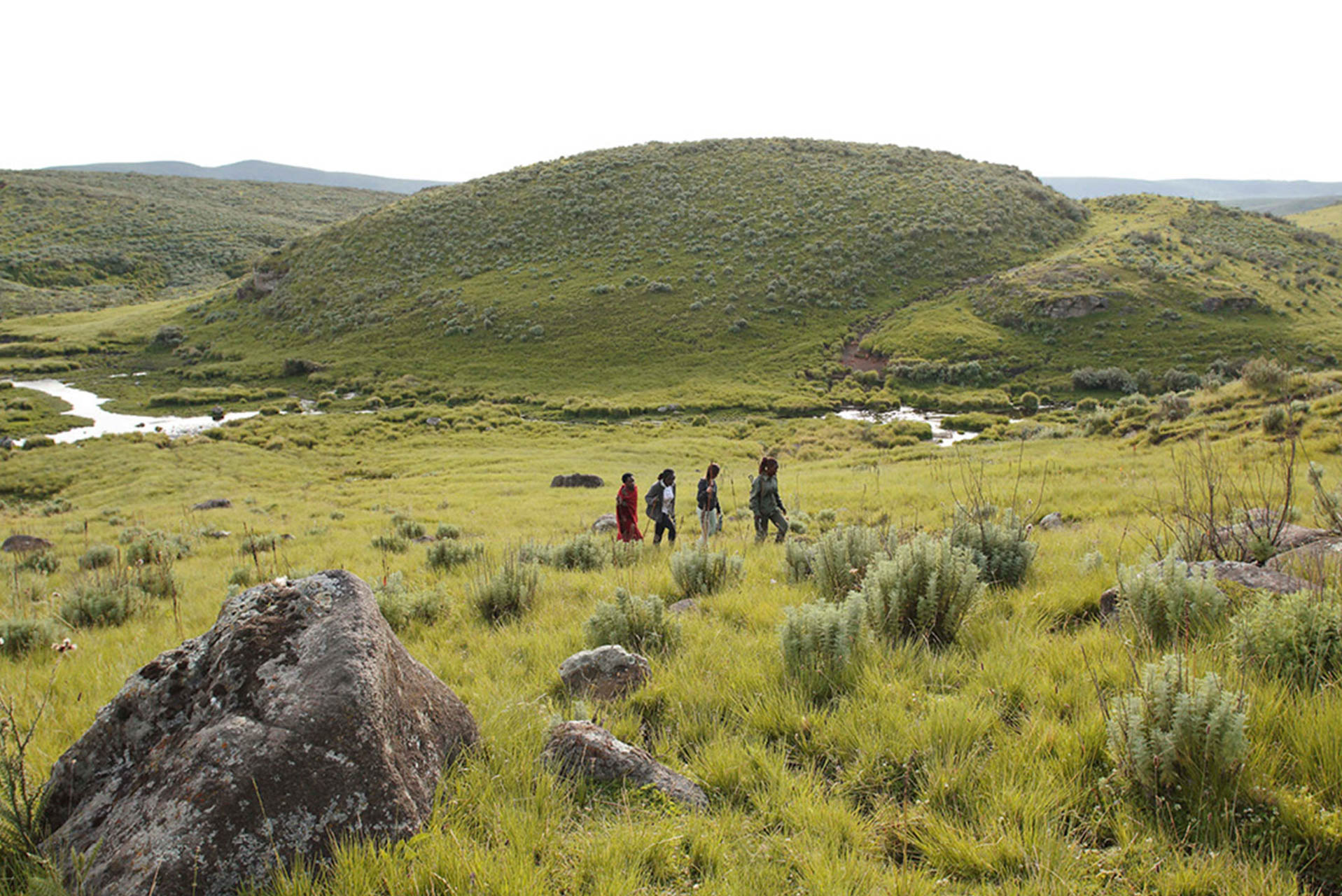
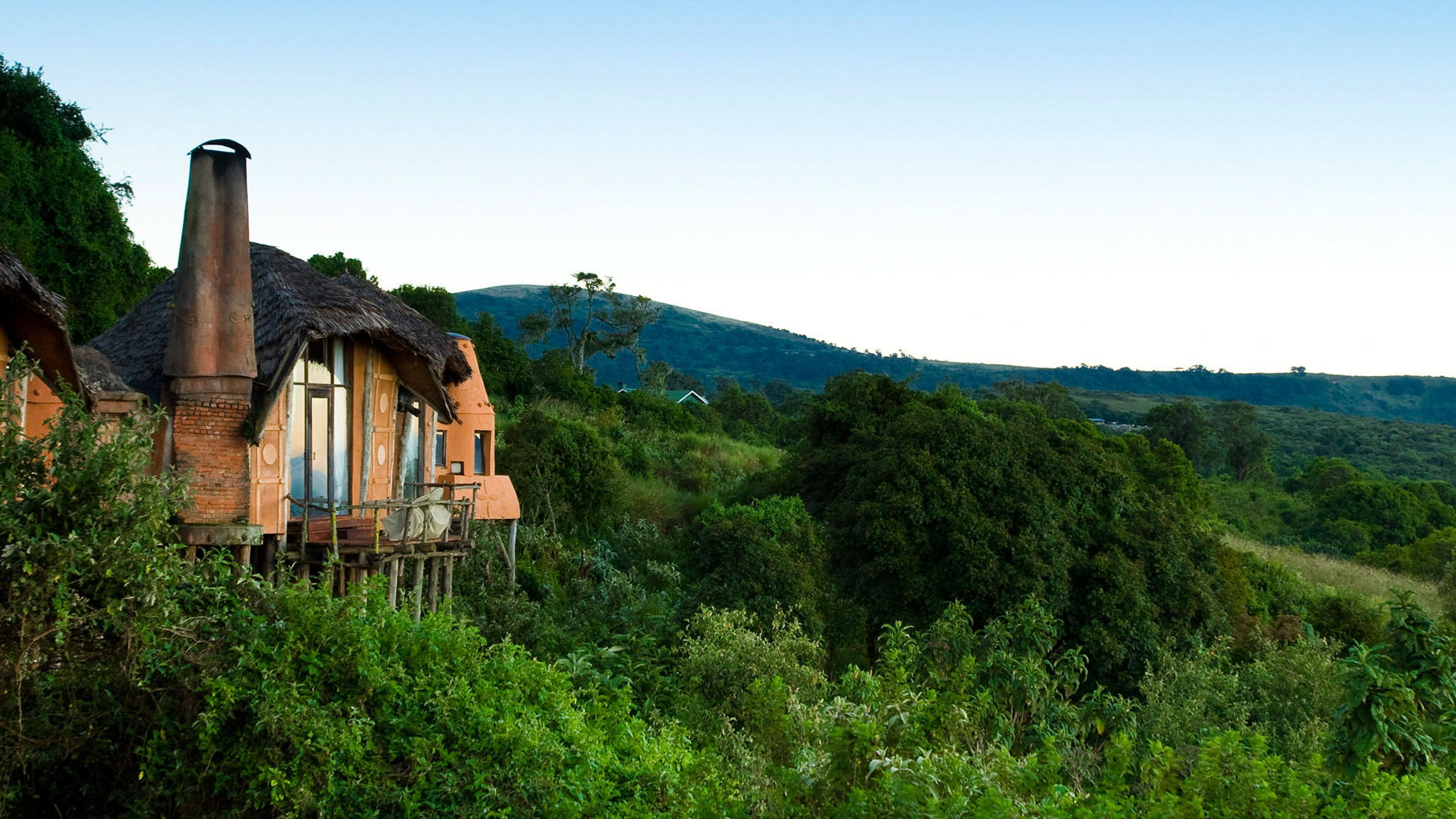

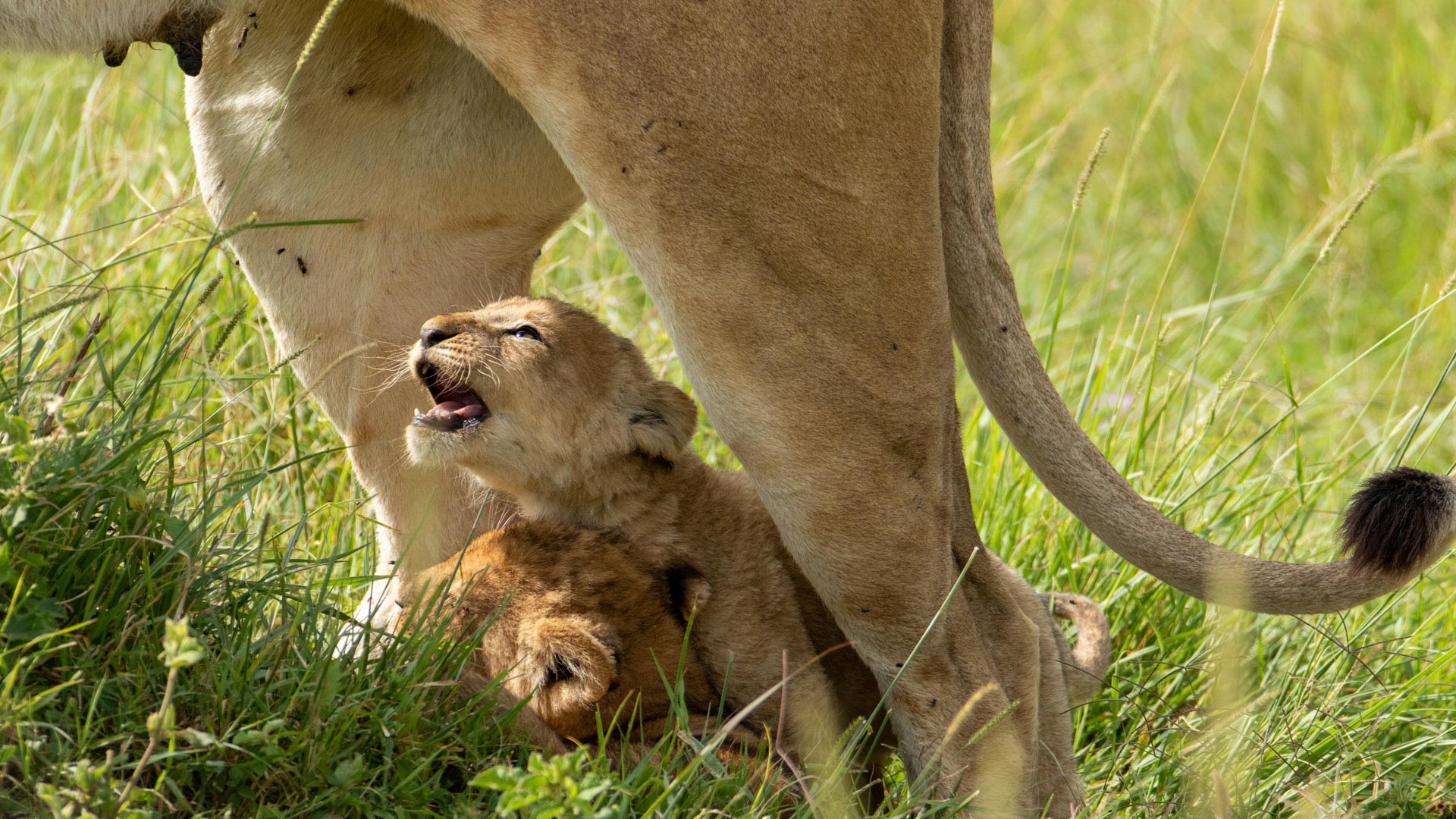
As neighbours, Kenya and Tanzania share a common border, including the Serengeti National Park on the Tanzanian side and the Maasai Mara National Reserve on the Kenyan side, forming the Serengeti-Mara Ecosystem.
Tanzania’s northern circuit is best accessed through the gateway town of Arusha. It enjoys seamless connectivity from Nairobi and nearby Kilimanjaro International Airport, both of which are well connected internationally. There are several scheduled flights daily from Arusha, or you can fly privately.
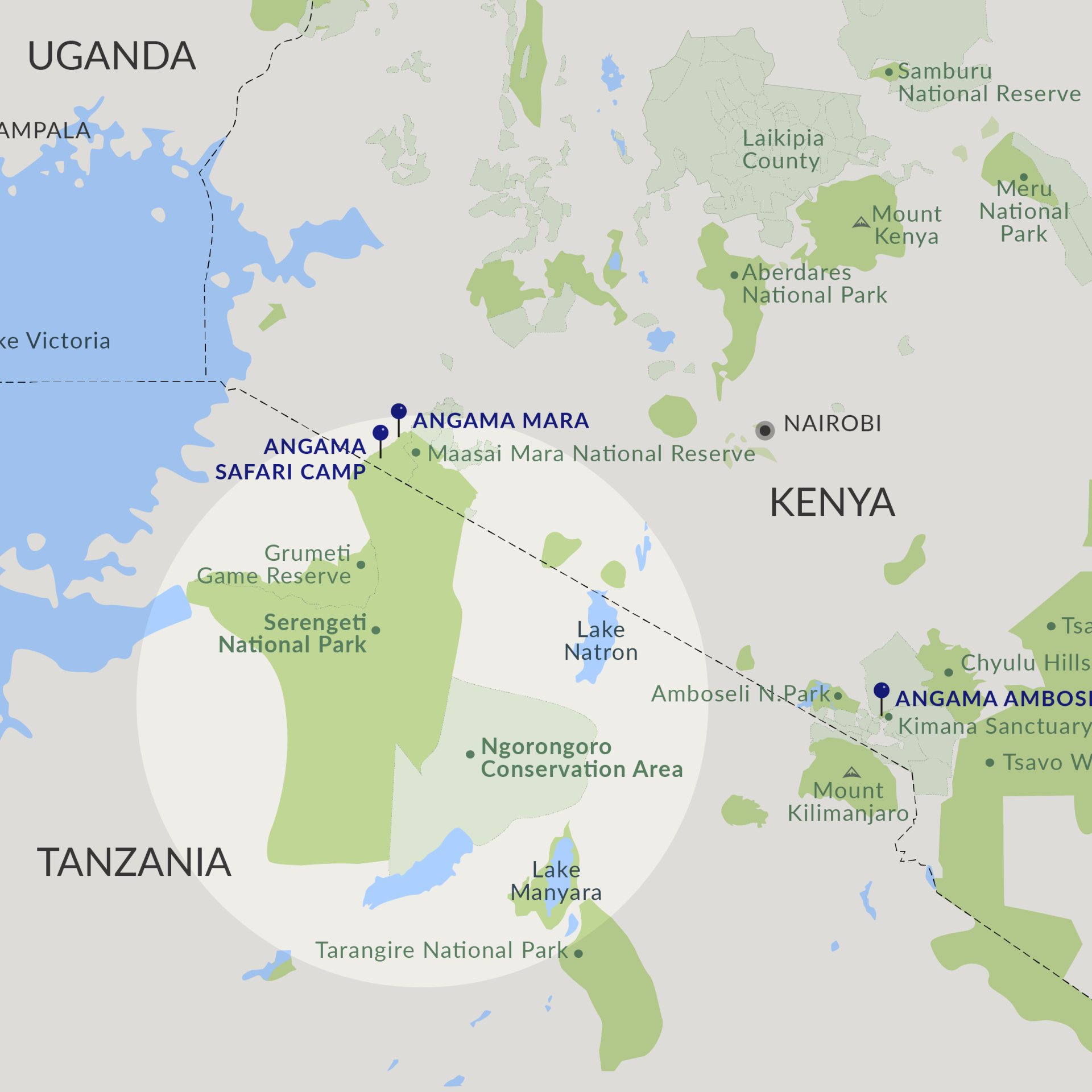
The climate in the Serengeti is, naturally, similar to the Maasai Mara, with May to August being the dry season and generally cool. Even during the rainy season, it rains generally mid-afternoon, lasting a couple of hours at most — so your game viewing is not disturbed too much. From January to March, aside from being the birthing season, views of Mount Kilimanjaro are more reliable, and so a visit to the Serengeti can take in Tanzania’s famed mountain.
–Hot Dry Season (January to February): The warmest and driest time of the year, temperatures range from 25°C to 30°C (77°F to 86°F)
–Long Rainy Season (March to May): Temperatures average between 20°C and 25°C (68°F to 77°F)
–Cool Dry Season (June to October): Temperatures range from 15°C to 25°C (59°F to 77°F)
–Short Rainy Season (November to December): Temperatures average between 20°C and 25°C (68°F to 77°F)
Tanzania’s northern circuit is best accessed through the gateway town of Arusha, which enjoys seamless connectivity from Nairobi and nearby Kilimanjaro International airport — both of which are well linked internationally. There are several scheduled flights daily from Arusha, or fly privately if you so choose. Finally, the Tarime-Migori Route is a three-hour transfer between the Mara and northern Serengeti — this combination of flights and vehicle transfers saves a lot of time and gets you over the border in the most convenient way possible.
To enter Tanzania you will need:
–A valid passport for at least six months from the date of entry, with at least one blank page (temporary passports will not be accepted)
–Visas are required for visitors from many countries, including the UK and the US
–Visas for Tanzania are available upon entry at all official entry points or in advance from a Tanzania Mission abroad (recommended)
–Ordinary / Tourist visas cost USD $100 for American citizens, and USD $50 for other nationalities, and applications must be accompanied by a recent passport-sized photograph
–Visitors from certain countries do not require a visa: for a full listing, and more information, please see the website of Tanzania’s Ministry of Home Affairs, or the Tanzanian Embassy in Washington DC
Please note that all scheduled flights carry a luggage restriction of 15kg per person in soft bags, including carry-ons. The acceptance of excess baggage is at the sole discretion of the airline but some offer the option to purchase an additional freight seat for luggage weighing up to 75kg.
Tanzania is one of the many African countries where yellow fever is endemic and a yellow fever vaccination certificate is required for travellers over one year of age who are arriving from other countries classified in the endemic zone (much of Africa and Latin America). Vaccinations need to be administered 10 days or more prior to travel, and the certificate will need to be provided as proof. Depending on your onward travel plans, or country of residence, you may also be required to have the vaccination in order to leave Tanzania.
–Travellers arriving from an endemic country will be required to present a valid yellow fever certificate for all travellers older than one year
–Vaccinations need to be administered 10 days or more prior to travel, and the certificate will need to be provided as proof. Depending on your onward travel plans, or country of residence, you may also be required to have a yellow fever certificate for entry
–Yellow fever certificates now have a lifetime validity
Although there are many areas that are considered low-risk, malaria does exist in East Africa and we recommend that travellers contact their local medical clinic for professional advice and that they obtain comprehensive travel insurance, including health cover, prior to travelling.
–Tanzania is classified as a malaria area. We recommend that travellers contact their local medical clinic for professional advice, and that they obtain comprehensive travel insurance, including health cover, prior to travelling
–Insect repellent is likely to be provided at most lodges in the region, please confirm for your specific itinerary
We recommend purchasing travel insurance at the time of booking to ensure you are covered for the unexpected. The insurance should include coverage for trip delay, trip interruption, trip cancellation, emergency medical and emergency evacuation/repatriation, and baggage delay and loss.
The experienced Angama Travel team is here to create an itinerary tailored to your dream holiday and destinations. They are ready to assist you during every step of your journey, from the exciting process of itinerary planning to support throughout your trip and keep in touch once you have returned home.
